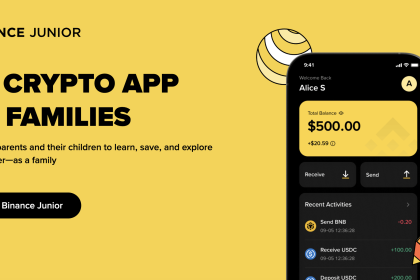Blockchain technology is reshaping the global payments landscape, offering innovative solutions to persistent issues, particularly in Africa. This transformation is crucial for the continent, where traditional financial systems are often inefficient and costly, especially in cross-border transactions and remittances.
Africa’s payment infrastructure relies heavily on outdated systems, many of which have been in place for over 50 years. These traditional systems depend on multiple intermediaries, such as banks, card networks, and payment processors. Each intermediary adds layers of complexity, driving up costs and causing delays. Cross-border transactions, in particular, are burdened with high fees and extended processing times. For example, sending money internationally can take up to five business days and incur fees of around 6.35% of the transaction amount, according to the World Bank.
East Africans continue to struggle to find affordable options for sending money within the region, making it one of their greatest barriers.
By The Numbers
Remittances sent to Kenya every month average around $400,000, with the main sources being the United States, the United Kingdom, Canada, Australia, and Uganda. On average, one must pay 35% to send $200 from Tanzania to Kenya, 30% to Uganda, and 20% to Rwanda—much higher than the global average of 12.5%, according to the International Monetary Fund (IMF).
The global market for cross-border payments is substantial and growing. In 2023, the B2B cross-border payments market was valued at $39 trillion and is projected to increase to $53 trillion by 2030. Despite advancements in payment technologies, such as those offered by fintech companies like Stripe and PayPal, these solutions still rely on legacy infrastructure, limiting their effectiveness and keeping transaction fees high.
Blockchain technology offers a transformative alternative by addressing these inefficiencies directly. Unlike traditional systems, blockchain provides a decentralized, peer-to-peer payment network that eliminates the need for intermediaries. This approach significantly reduces transaction costs and speeds up processing times. Blockchain operates on a distributed ledger, where transactions are recorded immutably and processed directly between parties. This bypasses the need for banks and other intermediaries, resulting in faster and more cost-effective transactions.
Stablecoins
Stablecoins, digital currencies designed to maintain a stable value, play a crucial role in the blockchain payments ecosystem. In 2023, the stablecoin market processed over $10.8 trillion in transactions, demonstrating the increasing adoption of blockchain-based payment solutions. Stablecoins offer a stable, cash-equivalent option for transactions, addressing some of the volatility associated with other cryptocurrencies.
The benefits of blockchain payments extend beyond just cost and speed. Blockchain’s decentralized nature ensures greater security and transparency. Every transaction is recorded on a distributed ledger, reducing the risk of fraud and manipulation. Moreover, blockchain payments are not subject to the geographical and regulatory limitations of traditional systems, making them a more resilient and inclusive option for global commerce.
For Africa, blockchain technology holds particular promise. A significant portion of the African population remains unbanked, lacking access to traditional financial services. Blockchain payments can bridge this gap by providing a solution that only requires a smartphone and internet connection. This inclusivity is crucial for driving economic growth and financial inclusion across the continent.
Challenges
Despite its advantages, blockchain technology still faces challenges. Scalability remains a concern, as blockchain networks must handle transaction volumes comparable to traditional payment systems. For instance, Visa can process up to 65,000 transactions per second, while the fastest blockchain networks, like Solana, handle around 1,000 transactions per second.
While regulatory frameworks and the management of blockchain transactions present challenges, these obstacles are being actively addressed. Governments and industry leaders are increasingly collaborating to establish clear regulations that foster innovation and ensure the secure use of blockchain technology. Platforms like Binance Pay are playing a pivotal role in this effort by offering user-friendly interfaces that simplify blockchain transactions. These efforts are making it easier for individuals and businesses to harness the benefits of blockchain technology, driving broader adoption and contributing to a more efficient financial ecosystem.
As blockchain technology continues to develop, it is expected to further revolutionize the payments landscape. Innovations such as improved scalability solutions and clearer regulatory frameworks will enhance the efficiency and accessibility of blockchain payments. For Africa, this means more affordable, faster, and inclusive financial transactions, which could significantly impact economic development and financial inclusion across the continent.
Blockchain technology presents a compelling alternative to traditional payment systems, particularly in regions like Africa, where inefficiencies and high costs are prevalent. By leveraging decentralized networks and digital currencies, blockchain offers a path to faster, cheaper, and more transparent transactions. As adoption grows and technology advances, blockchain is set to play an increasingly important role in shaping the future of global payments, driving financial inclusion, and supporting economic growth
Catch up on news and other tidbits on our WhatsApp Community Page, Twitter/X, and subscribe to our weekly newsletter to ensure you don’t miss out on any news.










